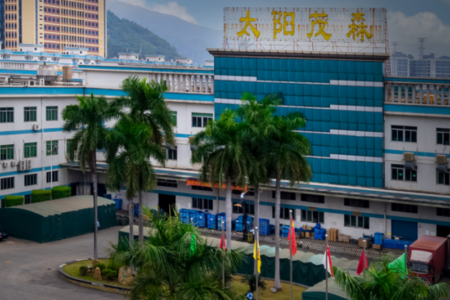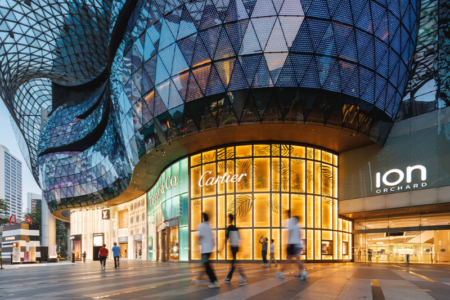It’s been a month since US President Donald Trump unleashed a wave of reciprocal tariffs for more than 180 countries in what he termed “Liberation Day”.
Since then, he has implemented a 90-day pause on the majority of these tariffs, but has retained the 145% tariff imposed on China after the two countries engaged in a tit-for-tat.
Despite this pause, the US will still go ahead with a baseline tariff rate of 10% across the board.
Such a move will surely push up costs for businesses around the world.
The US’s squabble with China may also lead to a bruising trade war that will negatively impact the world’s economy.
With so much uncertainty swirling, are Singapore’s banks still a good addition to your investment portfolio?
The current tariff situation
The tariff situation remains volatile and ever-changing, but for now, Trump has reiterated that he “cannot imagine” increasing Chinese tariffs more than he has.
China has previously hit back with 125% tariffs on US imports but has now exempted some goods from these bruising taxes.
Both countries are understandably worried about the economic fallout from this trade dispute that may escalate into a full-blown trade war.
With the situation remaining dynamic, investors should brace for more uncertainty and volatility ahead as the clock is ticking on the 90-day pause.
Banks paint an optimistic outlook
Back when the local banks announced their full-year (2024) earnings, management painted a sanguine outlook for 2025.
DBS Group (SGX: D05) expects loan growth for 2025 along with a high-single-digit year-on-year increase in non-interest income, led by increases in wealth management fees and treasury customer sales.
Singapore’s largest bank is also disbursing its excess capital in the form of a capital return dividend of S$0.15 per share per quarter in addition to its ordinary dividend of S$0.60 per quarter.
OCBC Ltd (SGX: O39) is looking at mid-single-digit loan growth but warned that trade tensions could impede global growth.
The lender is also paying down its excess capital by increasing its ordinary dividend for 2024 to S$0.85 (2024: S$0.82) and declaring a special dividend of S$0.16.
As for United Overseas Bank (SGX: U11), or UOB, management painted a bullish picture with the expectation of high single-digit loan growth for 2025 and double-digit fee income growth.
Like its two peers, UOB is also paying out its excess capital by raising its ordinary dividend from S$1.70 in 2023 to S$1.80 for 2024 and paying out a special dividend of S$0.50 in two tranches.
Dampened consumer and business sentiment
When the three blue-chip banks released their 2024 results back in February, Trump had yet to declare his list of comprehensive tariffs.
There could be further downside risks for the economy in light of these tariffs, which will result in dampened consumer and business sentiment.
With costs set to rise across supply chains, companies may hesitate to spend or delay spending and adopt a “wait-and-see” stance.
In light of this weakened sentiment, more individuals or businesses may hold back from taking on debt, thus negatively impacting banks’ loan growth.
Keep an eye on non-performing loans
Besides loan growth being possibly anaemic because of the tariffs, investors may also need to watch out for an increase in non-performing loans (NPL).
Tariffs cause the prices of goods and services to rise, thus putting pressure on personal and business finances.
More customers may have difficulty servicing their loans, while others may default on them should spending decline and a downturn occur.
Hence, banks may have to write off some loans or make higher general and specific provisions for potential bad loans, thus increasing their expenses.
Interest rates may stay high
While there could be headwinds to the banks’ loan books, one possible tailwind could come in the form of “higher for longer” interest rates.
With tariffs set to re-ignite inflation, the US Federal Reserve may hold back from cutting interest rates and continue to monitor the situation.
At the same time, a possible economic downturn may spur the central bank to reduce rates despite higher-than-expected inflation.
There are many moving parts to the equation, and no one knows what will transpire in the next few months and quarters.
Should interest rates stay elevated, they will act as a tailwind for the bank’s net interest margins and help to preserve the lenders’ net interest income.
Get Smart: Watch out for the next earnings
The key now will be for investors to pay close attention to the banks’ commentary when they release their first quarter of 2025 (1Q 2025) earnings.
Management should provide some comments on the tariff situation and how it may impact their earnings, net interest margin, and non-interest income forecasts.
Armed with this knowledge, investors can then make a more informed decision regarding a possible investment in the local banks.
UOB is set to release its 1Q 2025 earnings in the morning of 7 May, while DBS will report on 8 May before the market opens.
OCBC is the last of the three banks to report its earnings and will do so on 9 May before the market opens.
First-time investors: We’ve finally released our Beginner’s Guide. Read it in an afternoon, follow the principles, pick an investing style and buy your first SGX stocks within the next few hours! Click here to download it for free.
Follow us on Facebook and Telegram for the latest investing news and analyses!
Disclosure: Royston Yang owns shares of DBS Group.





